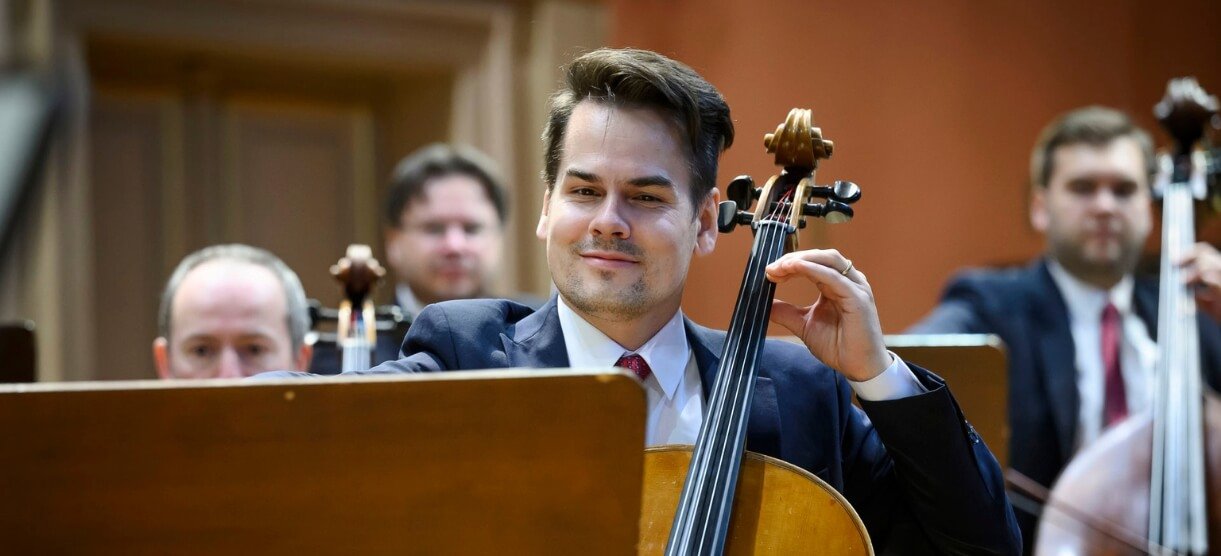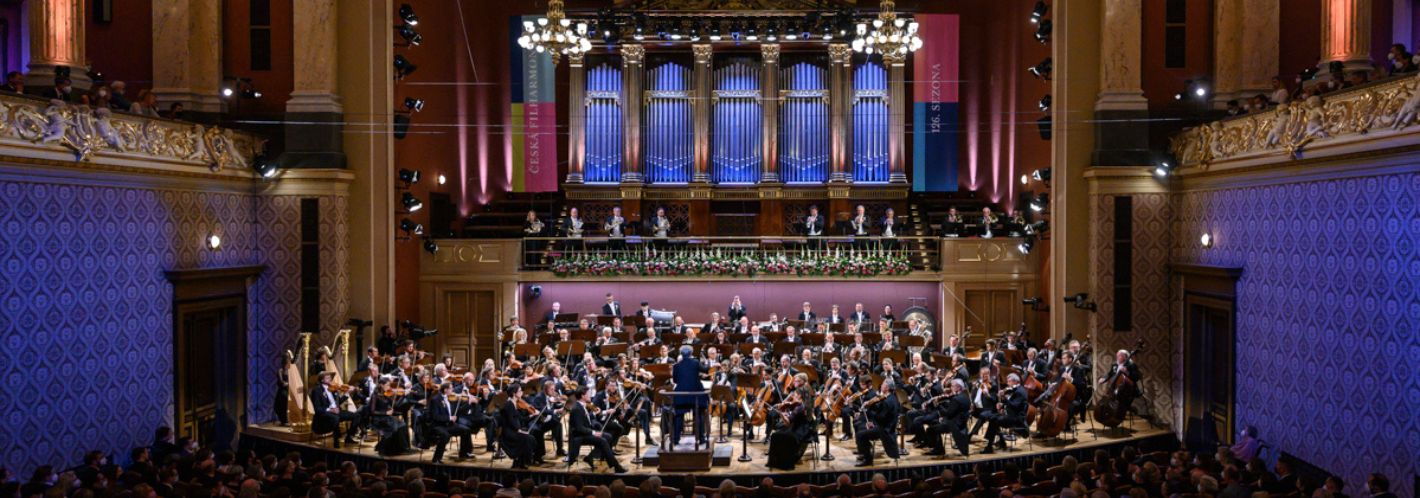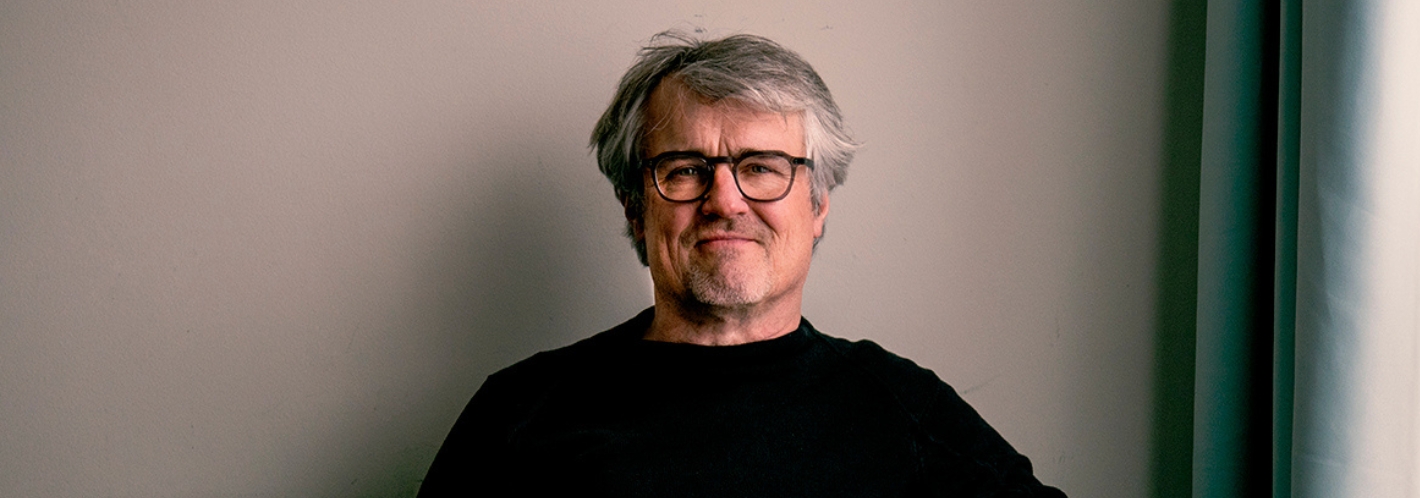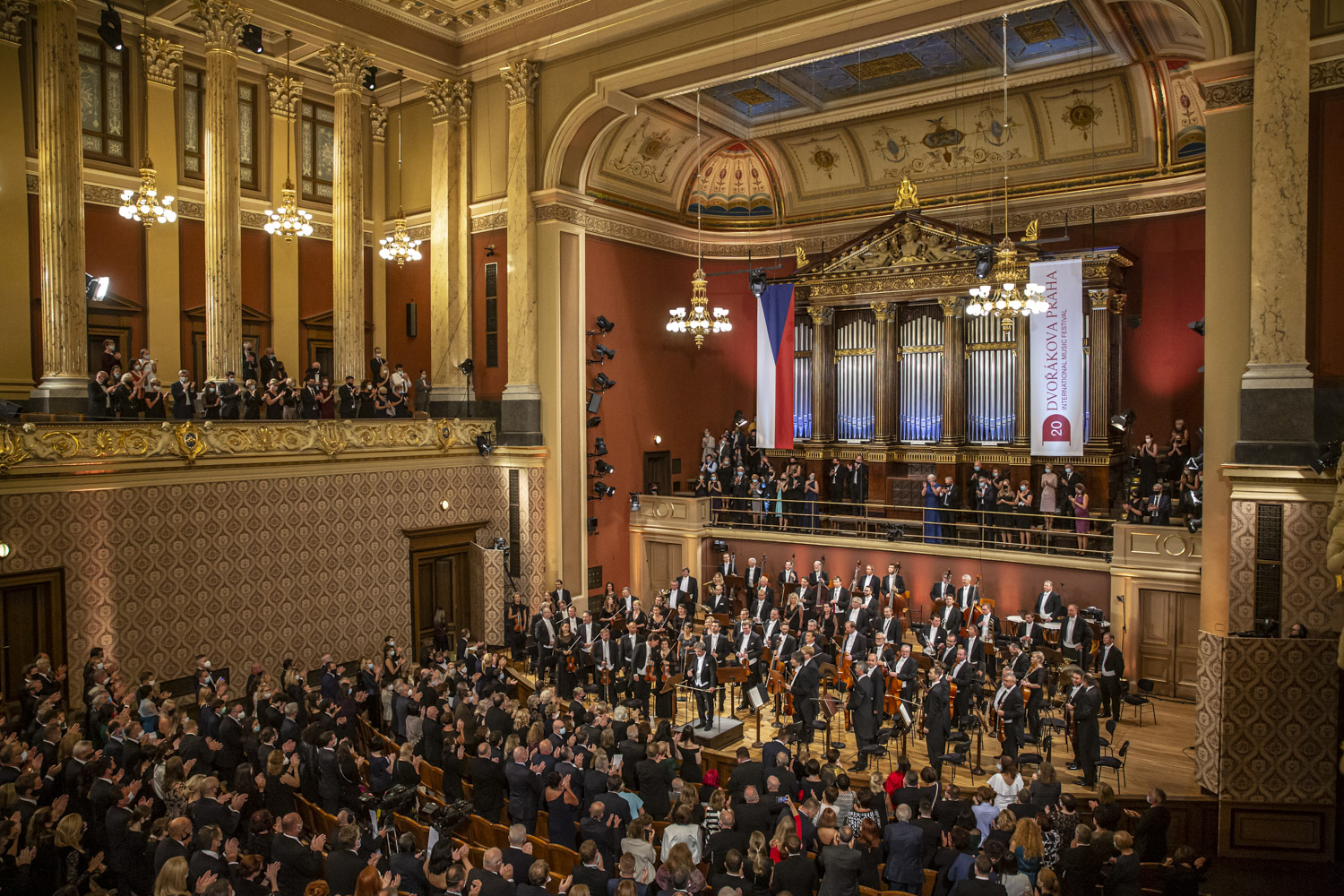
Bohuslav Martinů: Memorial to Lidice, H. 296
Petr Wajsar: Violoncelloops – Concerto for Cello and Orchestra (world premiere)
Pyotr Ilyich Tchaikovsky: Symphony No. 5 in E Minor, Op. 64
The past and the present, tragedy and emotion, the classics and technology. Deep respect for the victims of the Lidice massacre, seemingly taking the place of a moment of silence for all who are dying needlessly in the wars of today. Only afterwards do we arrive at the immediate present with the composition Violoncelloops by Petr Wajsar, who combines classical and popular music with an incredibly deft touch. However, his “loops” are not those of a DJ playing an LP. Instead, the loops are of a cellist in the same live performance. And the principal cellist of the Czech Philharmonic, Václav Petr, really knows how to be “lively”. The music’s tempestuous contrasts and shifting emotions are a depiction of unforeseeable fate, as if embodying all of the twists and turns of our times, when people are able to love each other or make war with the same intensity. All of the seemingly irreconcilable contradictions will remain unified thanks to the refined sound of the Czech Philharmonic under the baton of the wonderful conductor Ingo Metzmacher.
Gramophone’s 2024 ‘Orchestra of the Year’, the Czech Philharmonic gave its first concert – an all-Dvořák programme conducted by the composer himself – in the famed Rudolfinum Hall on 4 January 1896. The Orchestra is acknowledged for its definitive interpretations of Czech composers and recognised for its special relationship with the music of Brahms, Tchaikovsky, and Mahler, who conducted the world première of his Symphony No. 7 with the Orchestra in 1908. It is currently recording the complete cycle of Mahler symphonies with Chief Conductor and Music Director Semyon Bychkov for Pentatone.
The Czech Philharmonic’s extraordinary and proud history reflects both its location at the very heart of Europe and the Czech Republic’s turbulent political history, for which Smetana’s Má vlast has become a potent symbol. 2024 was the Year of Czech Music, a major celebration launched on the bicentenary of Smetana’s birth and held across the Czech Republic every ten years. The Czech Philharmonic marked Smetana’s bicentenary with a series of concerts at the Smetana Litomyšl Festival, including a rare concert performance of his opera Libuše, conducted by Principal Guest Conductor Jakub Hrůša.
The contribution of the Czech Philharmonic and Semyon Bychkov to the Year of Czech Music was the Dvořák Festival, a combined performance of three overtures, instrumental concerts, and the last three symphonies of Antonín Dvořák, both in Prague and on tour in South Korea, Japan, Spain, Austria, Germany, Belgium, and France. The highlight of the Year of Czech Music performed by Semyon Bychkov and the Czech Philharmonic was a series of three concerts in New York's Carnegie Hall.
Alongside the Czech Philharmonic’s Youth Orchestra, Orchestral Academy, and Jiří Bělohlávek Prize for young musicians, a comprehensive education strategy engages with more than 400 schools, bringing students of all ages to the Rudolfinum – some travelling as long as four hours – to hear concerts and participate in workshops. An inspirational music and song programme led by singer Ida Kelarová for the extensive Romani communities within the Czech Republic and Slovakia has helped many socially excluded families to find a voice.
An early champion of the music of Martinů and Janáček, the works of Czech composers – both established and new – remain the lifeblood of the Orchestra. Instigated by Semyon Bychkov at the start of his tenure, nine Czech composers and five international composers – Detlev Glanert, Julian Anderson, Thomas Larcher, Bryce Dessner, and Thierry Escaich – were commissioned to write for the Orchestra.
source: Česká filharmonie

Whether as an opera conductor, orchestra leader, festival director or book author: Ingo Metzmacher is consistently committed to music, especially of the twentieth and twenty-first centuries. Making the new sound familiar and the familiar sound new has been his focus since the beginning of his career.
Ingo Metzmacher was General Music Director of the Hamburg State Opera from 1997 to 2005 and subsequently Chief Conductor at the Dutch National Opera in Amsterdam, as well as Chief Conductor and Artistic Director of the Deutsches Symphonie-Orchester Berlin from 2007 to 2010. Since 2016 he has been the Artistic Director of the KunstFestSpiele Herrenhausen, whose next festival edition will take place from 16 May to 2 June 2024.
Ingo Metzmacher is a frequent guest with leading orchestras such as the Vienna Philharmonic, the Cleveland Orchestra, the Gewandhausorchester, the Vienna Symphony Orchestra and Ensemble Modern, as well as at opera houses and festivals such as the Vienna State Opera, the Opéra national de Paris, Milan's Teatro alla Scala, the Salzburg Festival and the Festival d'Aix-en-Provence.
Highlights of the 2024/25 include his fifth tour with the Gustav Mahler Jugendorchester, performances with the Gewandhausorchester, Orquesta Sinfónica de RTVE, Wiener Symphoniker, SWR Symphonieorchester, NDR Elbphilharmonie Orchester and the Armenian National Philharmonic Orchestra, and the world premiere of Francesco Filidei’s Il nome della rosa at Teatro alla Scala. He is conducting a new production of lbéric Magnard's Guercœur at the Opéra national du Rhin, Leonard Bernstein's Mass - A Theatre Piece for Singers, Players and Dancers with the NDR Radiophilharmonie and nine choirs from Hanover as part of the KunstFestSpielen Herrenhausen, as well as the closing concert of the Donaueschinger Musiktage.
Metzmacher’s wide-ranging discography includes live recordings of his legendary New Year’s Eve concerts in Hamburg from 1999 to 2004 entitled Who’s Afraid of 20th Century Music?, a complete recording of Hartmann’s symphonies with the Bamberg Symphony Orchestra, the world premiere of Henze’s Ninth Symphony with the Berlin Philharmonic and Messiaen’s Eclairs sur l'Au-delà… with the Vienna Philharmonic. Most recently, he released two recordings with Ensemble Modern: Andre’s cycle riss and Beschenkt – 40 miniatures celebrating the ensembles 40th anniversary.
He is the author of two books: Keine Angst vor neuen Tönen [Don’t Be Afraid of New Sounds] and Vorhang auf! Oper entdecken und erleben [Curtain Up! Discovering and Experiencing Opera].
source: OPUS 3 ARTIST

Already in his childhood, the cellist Václav Petr won a number of prizes at international music competitions including Concertino Praga, the Bohuslav Martinů Foundation Competition, Prague Junior Note, Talents for Europe, and the International Cello Competition in Liezen, Austria. He is a graduate of the Academy of Performing Arts in Prague, and he furthered his education at the Universität der Künste in Berlin. He has also taken part at many masterclasses in Kronberg, Hamburg, Vaduz, and Baden-Baden, and he has participated at the European Academy of Music in Bonn. He has been appearing as a soloist for twenty years with important Czech and foreign orchestras. Since 2013 he has been the principal cellist of the Czech Philharmonic. He also performs chamber music: since 2009 he has been a member of the Josef Suk Piano Quartet, with which he won first prize in a competition of chamber ensembles in Val Tidone, Italy, and at one of the most prestigious competitions for chamber ensembles with piano, Premio Trio di Trieste. He plays a cello from the workshop of the master instrument maker Giovanni Battista Guadagnini (1757).

The Rudolfinum is one of the most important Neo-Renaissance edifices in the Czech Republic. In its conception as a multi-purpose cultural centre it was quite unique in Europe at the time of its construction. Based on a joint design by two outstanding Czech architects, Josef Zítek and Josef Schultz, a magnificent building was erected serving for concerts, as a gallery, and as a museum. The grand opening on 7 February 1885 was attended by Crown Prince Rudolph of Austria, in whose honour the structure was named. In 1896 the very first concert of the Czech Philharmonic Orchestra took place in the Rudolfinum's main concert hall, under the baton of the composer Antonín Dvořák whose name was later bestowed on the hall.
